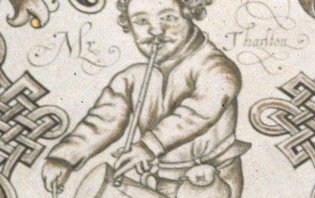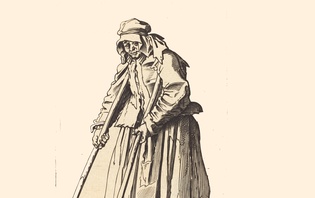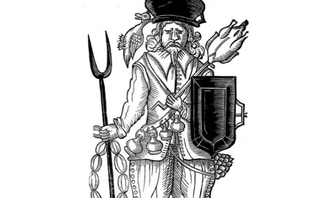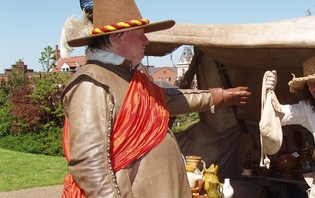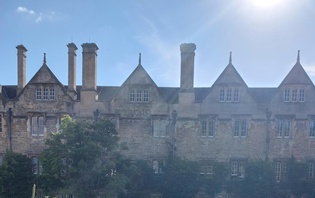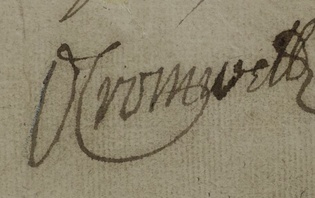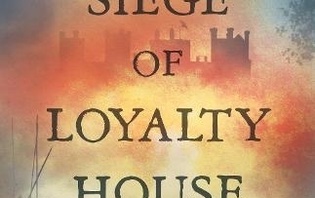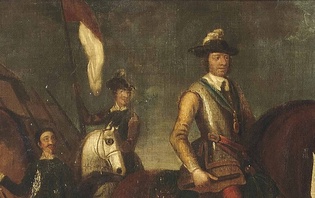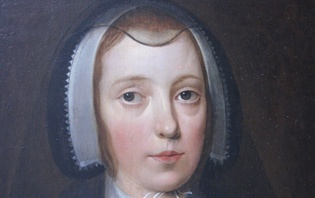The Case for Universal Access and Design: The Example of the Civil War Petitions Project
Digital humanities projects such as the Civil War Petitions project have led to unprecedented ease of access to a variety of source material in multiple archives across national and international boundaries. For many scholars working in digital humanities these exciting and innovative developments are slowly changing how we work. In the field of digital archives these developments are particularly encouraging for scholars and students with disabilities whether they be mobility related, sensory or neurological. It is also encouraging for those without disabilities but who are limited in their ability to visit archives, handle and read archival material. However, many scholars in the field of disability and digital humanities have stated that using digital technology to overcome these barriers is more than just putting archival material online. Scholars strongly advocate an approach of ‘Universal Design’ a set of principles in the design, output and user interaction of online materials with the aim of reaching and catering for the widest possible audience.
This blogpost aims to outline and discuss the importance of universal access and design in the digital humanities with specific reference to the Civil War Petitions project. It will define universal access and design by outlining its key features, arguing why issues of universal access and design should be mandatory considerations when creating and developing a digital archive or any digital humanities resource. It will then reflect on the current benefits and key features of the Civil War Petitions project that enable historians to work remotely or use the archive in ways that would not be possible in a traditional setting. It will draw attention to the advantages of using WordPress as a tool to promote universal access for all.
What is Universal Design and Why is it important?
In his seminal work on the subject George Williams defines the universal design principle as one where the largest audience is to be kept in mind when designing, creating and maintaining digital humanities projects. North Carolina State University’s College of Design states that universal design is ‘designing all products and the built environment to be aesthetic and useable to the greatest extent possible by everyone regardless, of their age, ability and status in life’ (Williams, p. 204). Indeed, those working in digital humanities should look beyond accessibility which aims to cater for a wide range of individual disabilities with bespoke targeted solutions and embrace the all encompassing concept of universal design which assists everyone. Lisa Potts has argued that digital humanities projects need to reach beyond their specialised field of researchers and attract the widest possible audience. Digital humanities scholars need to focus on the usability of their sites to attract these wide audiences. Williams highly recommends that all scholars working in the field of digital humanities should adhere to the recommendations of the web accessibility initiative when building a digital humanities project. Key recommendations on web content include providing text alternatives for non-text content, providing captions and other alternatives for multimedia and creating content that can be presented in different ways through the use of assistive technologies making it easier for users to see and hear content (Williams, p. 207; Potts, pp. 255-263; Web Accessibility Initiative, ‘WCAG 2.1 At a Glance’. For a critical evaluation of these guidelines, see Goggin and Newell, p. 1 and 118-119). The full documentation can be accessed here: https://www.w3.org/WAI/standards-guidelines/.
Why is this important? In the UK standards of web accessibility are enshrined in law. This is in line with the wider goals of the EU and the UN to pursue accessibility and inclusion in education. Williams argues that as the majority of digital humanities projects are pursued by publicly funded universities and other institutions projects therefore should be made as accessible as possible. Underpinning these ambitions are the pursuits of social justice and equality. Williams believes that all scholars and IT professionals should take an active interest and approach to the issue rather than waiting for governments to enforce the changes (Williams, pp. 205-206).
The Civil War Petitions Project: Enabling Independence
Before we focus on the key features of the civil war petitions project and its platform WordPress to enable universal design, we need to take a step back and reflect on key advantages of the project in terms of enabling full scholarly independence for a wide range scholars and students. It is estimated that 20% of the world population has some form of disability. Disability can affect everyone regardless of age, ability or social status. Anyone at any age or social background can become ill or disabled in their lifetime. Therefore, it is in everyone’s interests that we promote efforts to enable scholarly independence via digital humanities which helps facilitate inclusion and diversity within the history profession. These considerations co-exist and are inseparable from key arguments for universal design.
The Civil War Petitions Project brings together thousands of petitions dating from the mid seventeenth century from a variety of archives across the UK making them accessible online. It aids the ability of all scholars to access these materials at a time of their choosing and from home. Therefore, it saves time and money by cutting out the need to travel to archives and by doing so saving money on travel and accommodation. This is particularly important if you are a self-funded postgraduate or if you do not have the financial resources to travel. For scholars and students with limited mobility there are additional advantages too. Despite clear efforts by UK archives to enable physical accessibility to repositories, due to the nature of their locations or the age of buildings, not all archives are easily accessible to wheelchair users or those with limited mobility. In such situations, archives are very happy to make alternative arrangements with advance notice. However, the advantage of the Civil War Petitions Project is that it gives scholars with mobility impairments full independence in consulting key primary material without the need to worry about access or special arrangements. It also allows a number of these scholars to make large financial savings as many rely on assistants and carers who accompany them during their travels.
Physical access to the archive is one matter but consulting and taking notes from archival material is another. It brings its own set of challenges depending on the disability. I may be stating the obvious but seventeenth-century manuscripts are not in written in braille neither can text be audible to the reader. The widespread practice of allowing readers to take their own digital images of manuscripts has broken down some of these barriers especially for those of us who have had to rely on a scribe to assist with notetaking. Digital photography via mobile phones can cut down or remove the costly business of ordering copies. The Civil War Petitions project takes these developments further and allows all scholars to access material from a large cross section of archives. All scholars can work at their own pace, re-read material, compare and contrast a wide selection of source material all from the comfort of their own home or the office. The use of WordPress as a platform allows all scholars, including those who use assistive technology, to use the material in a variety of different ways that would be impossible in a traditional archival setting. Arguably, it creates a digital research community with a sense of belonging where a large number of users can access material regardless of age, ability or status. In doing so it promotes equality, diversity and inclusion within UK Higher Education (Konnerup, pp. 195, 198 and 203).
WordPress and Assistive Technologies
The use of assistive technologies is a highly complex subject which depends on individual disabilities and the various research and learning styles amongst scholars. An easy to use interface that can be used by the widest possible audience should be a central concern in digital humanities (Konnerup, p. 196). WordPress which is used by the Civil War Petitions Project has a simple, easy to use and effective interface for all its users. There are a number of WordPress plugins that make its content more accessible and bring us closer to succeeding in our ambitions for universal design in digital humanities:
- The Braille plug in developed by the University of Maryland Institute for Technology in the Humanities which combines with Anthologize plug which enables users to turn WordPress content into book form and translate English text into braille (University of Maryland, ‘Braille’).
- The Responsive Voice Text to Speech plug in allows WordPress text to be converted to speech (Responsivevoice, ‘Responsivevoice’).
- Able Player plug in allows you to provide audio and other accessible features to your videos and multimedia content (Armentrout, ‘Able Player’).
Even though these plug ins are in their early stages of development their very existence is extremely encouraging. It is hoped that one day many of these plug ins and other features which enable scholarly independence will become standard in the design of websites and blogs in the future. Thus, making universal design and access a reality for everyone in the academic world whether they be academics, students or the general public helping to bring history to life for everyone regardless of their age, ability or social status.
Further Reading
Armentrout Damion, ‘Able Player’ https://en-gb.wordpress.org/plugins/wp-able-player/ [Last accessed 28/04/20].
Goggin Gerard and Newell Christopher, Digital Disability: The Social Construction of Disability in the New Media (Oxford, 2003).
Konnerup Ulla, ‘Inclusive Digital Technologies for People with Communication Disabilities’ in Kergel David and Heidkamp Birte eds., The Digital Turn in Higher Education: International Perspectives on Teaching and Learning in an International World (Weisbaden, 2018).
Potts Lisa, ‘Archive Experiences: A Vision for User Centred Design in the Digital Humanities’ in Ridolfo Jim and Hart-Davidson William, Rhetoric in the Digital Humanities (Chicago, 2015).
Responsivevoice, ‘Responsivevoice’ https://en-gb.wordpress.org/plugins/responsivevoice-text-to-speech/ [Last accessed 28/4/20]
University of Maryland, Maryland Institute for the Humanities, ‘Braille’ https://wpsocket.com/plugin/braille/ [Last accessed 28/04/20].
W3: Web Accessibility Initiative (WAI) ‘WCAG 2.1 At a Glance’ https://www.w3.org/WAI/standards-guidelines/wcag/glance/ [Last accessed 27/04/2020]
Williams, George H, ‘Disability, Universal Design and Digital Humanities’ in Gold, Matthew K ed., Debates in Digital Humanities (Minneapolis, 2012).
Dr Kirsteen M MacKenzie is a historian specialising in the Wars of the Three Kingdoms 1638-1660 and Jacobitism c.1688-1788. Her monograph on the Solemn League and Covenant and the Three Kingdoms c.1643-1663 was published by Routledge in 2017. Her current interests are in British and Irish book history c.1603-1707. Dr MacKenzie is registered disabled and has a keen interest in how digital humanities can make history accessible for everyone. Dr MacKenzie has a Twitter feed @HistorianRemote which explores online and digital resources in history for higher education. You can also follow her on Twitter at @kirsteenMM

